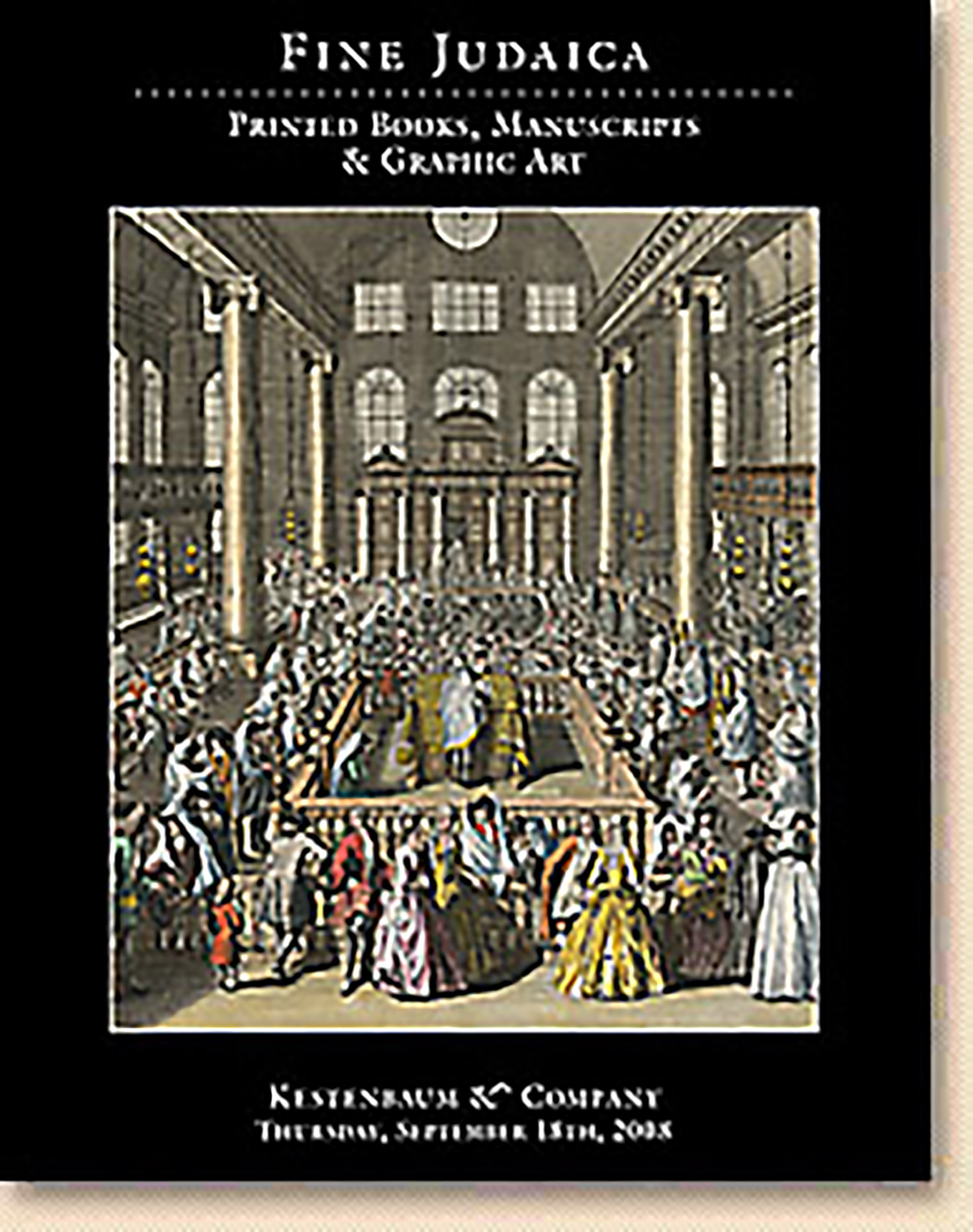Benjamin, Judah P. Extracts from the Speech of Hon. Mr. Benjamin, of Louisiana, on the Kansas Question: Showing the True Meaning of the Kansas Law, and His Reasons for Joining the Democratic Party. Delivered in the Senate, May 2, 1856

AUCTION 41 |
Thursday, September 18th,
2008 at 1:00
Fine Judaica: Printed Books, Manuscripts, & Graphic Art
Lot 30
(AMERICAN JUDAICA)
Benjamin, Judah P. Extracts from the Speech of Hon. Mr. Benjamin, of Louisiana, on the Kansas Question: Showing the True Meaning of the Kansas Law, and His Reasons for Joining the Democratic Party. Delivered in the Senate, May 2, 1856
Washington: The Union Office 1856
Est: $400 - $600
In 1852, Judah P. Benjamin became the first professing Jew elected to the United States Senate. Initially a Whig, he became a Democrat in 1856 after the Democratic Party espoused the cause of Southern rights. Benjamin was a leading member of the school of Southern politicians who favored secession from the Union as the only safeguard for Southern survival, to which end, he delivered this major address in the Senate defending slavery.
This is not the full text of the address which runs a total of fifteen pages (See Kestenbaum Sale 23, Lot 16), but sizable extracts. The address discusses whether slavery should be allowed in the newly-organized Kansas and Nebraska Territories. En passant, Benjamin explains that over the issue of Southern states' rights and slavery, he saw fit to quit the Whig Party and join the Democratic Party.
Benjamin, a native of the Caribbean, was raised in Charleston, South Carolina. After graduation from Yale, he settled in New Orleans. Upon the outbreak of the Civil War, Benjamin was appointed Attorney General of the Confederacy. He rose to become Secretary of War, and eventually, Secretary of State of the Confederacy. After the defeat of the Confederacy, Benjamin fled to England. At an advanced age he passed the English Bar and began an extremely lucrative career as an English barrister. See H. Simonhoff, Jewish Notables in America 1776-1865 (1956), pp. 370-373
